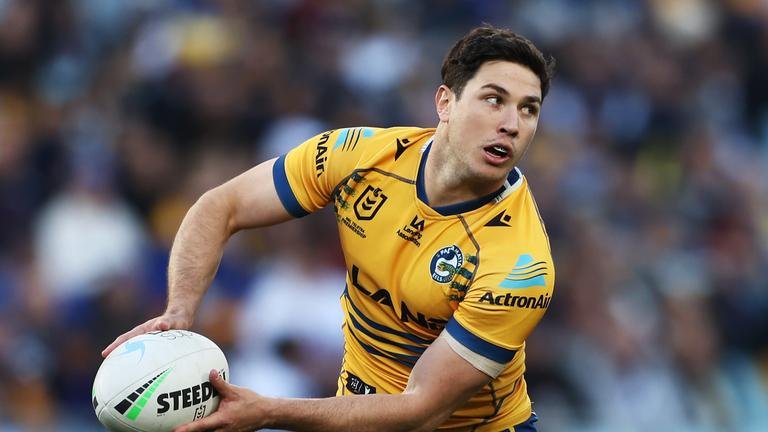
Teenagers Identified as Individuals Behind Death Threats to Eels Star Mitchell Moses
Two teenage boys have been identified as the individuals responsible for sending death threats to Parramatta Eels captain and halfback Mitchell Moses, in an incident that shocked the NRL community and raised renewed concerns about player safety and online harassment in sport.
The threats, which were made last week, were directed to Moses through a member of his family rather than directly to the player. The situation escalated quickly, prompting heightened security measures to protect the 31-year-old playmaker. Moses was closely guarded when he took to the field on Friday night, with security personnel shadowing him from the moment he stepped into CommBank Stadium. He was escorted through a private and less visible entry route and kept under watch before, during, and after the match.
Speaking after the game, Moses described the ordeal as frightening and surreal.
“It’s scary. You never want your family to feel threatened. I’ve been in tough moments in footy, but this is different. When family is involved, that’s when it really hits home,” Moses said.
New South Wales Police confirmed on Sunday that an investigation had commenced into the alleged threats.
“On Sunday, NSW Police commenced an investigation after receiving reports of alleged threats made towards a 31-year-old man,” police said in a statement.
As part of the investigation, detectives from North Shore Police Area Command attended Greenacre on Monday. There, they spoke with two teenage males, aged 15 and 16. After questioning, police determined that the teens were responsible for sending the threatening messages.
The two boys will not face the traditional criminal court process. Instead, police announced they will be dealt with under the Young Offenders Act. This legislation is designed to handle juvenile offences in a way that focuses on rehabilitation rather than punishment, particularly when dealing with first-time or low-risk offenders.
The alleged offence falls under the use of a carriage service to menace, harass, or cause offence — a charge that covers threatening or abusive communication sent via phone, social media, or online messaging platforms.
While the identity of the teenagers will remain confidential due to their age, the revelation has sparked widespread debate about the growing trend of online abuse in professional sport, especially when young individuals are involved.
For weeks, rugby league commentators and players have voiced growing concern about the increasingly toxic environment of online commentary and direct messaging. High-profile athletes have spoken openly about how easily anger from fans can cross into abuse or threats when social media gives people anonymity and instant access.
Rugby league officials have reiterated their stance that any form of harassment or threatening behaviour toward players, officials, or their families will not be tolerated.
The Parramatta Eels released a statement expressing support for Moses while condemning the threats.
“Player safety and wellbeing are our priority. No one should be subjected to threats or abuse in any environment, especially when family members are targeted. We are fully cooperating with authorities and providing Mitchell and his loved ones with all necessary support,” the club said.
Moses, who is one of the most influential and scrutinised players in the NRL, has experienced intense pressure at various points in his career, but individuals close to him say this incident crossed a line that sport should never allow.
The situation also highlights a broader social concern: the ease with which minors are accessing and participating in harmful online behaviour. Experts argue that teenagers today are exposed to a digital world with minimal guidance or accountability, where anger, disappointment, or team loyalty can quickly turn into reckless, serious actions.
Sports psychologists note that fans, especially younger ones, may struggle to separate the emotional highs and lows of competition from real-life consequences. They may also fail to understand that professional athletes are, above all, human beings with families and private lives.
Legal experts expect the teenagers involved will likely undergo counselling, community programs, or formal apologies as part of their Young Offenders Act outcome. The aim will be to educate and prevent future behaviour rather than simply punish.
As for Moses, sources within the club believe the ordeal has understandably taken an emotional toll, but he is determined to remain focused on his football. Teammates have reportedly rallied closely around him, offering support and ensuring he does not feel isolated through the process.
NRL clubs and governing bodies are also expected to review security protocols and player support frameworks to ensure that similar incidents can be responded to quickly and safely in the future.
For now, the rugby league community has voiced a clear message: abuse is not passion, threats are not banter, and no outcome in a football match justifies endangering a player or their family.




